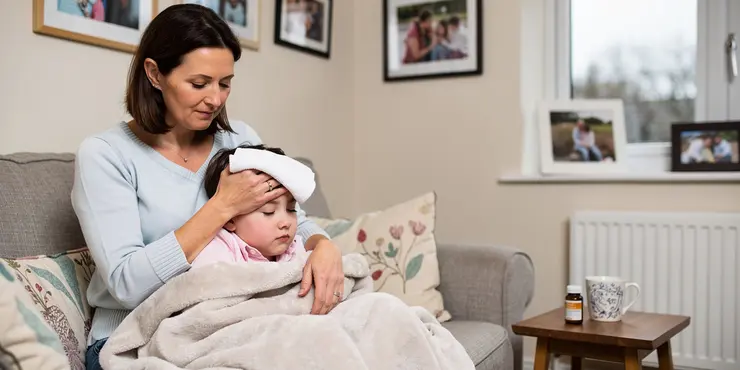
Find Help
More Items From Ergsy search
-
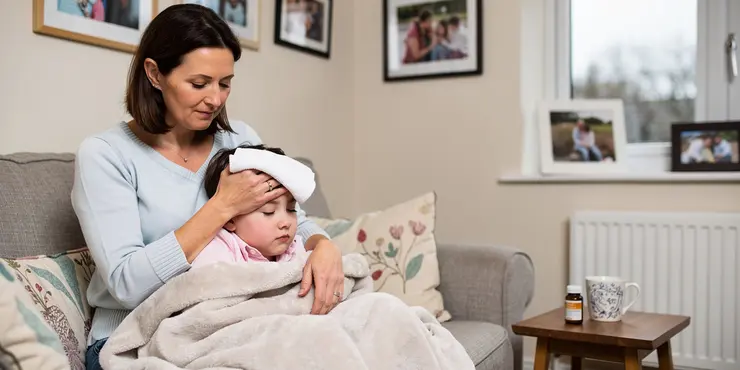
Which medication should be avoided for children with fevers?
Relevance: 100%
-
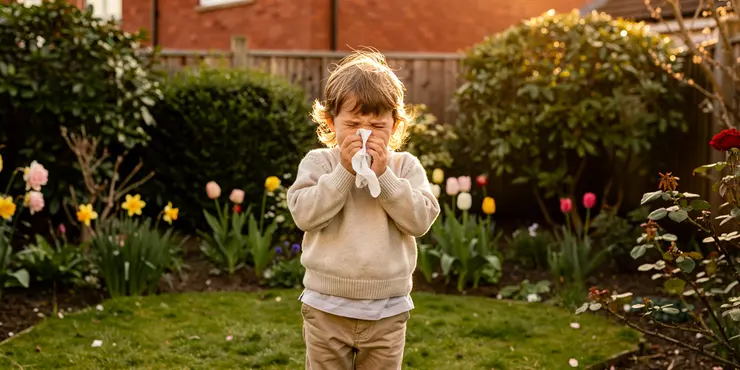
Can children develop hay fever?
Relevance: 70%
-
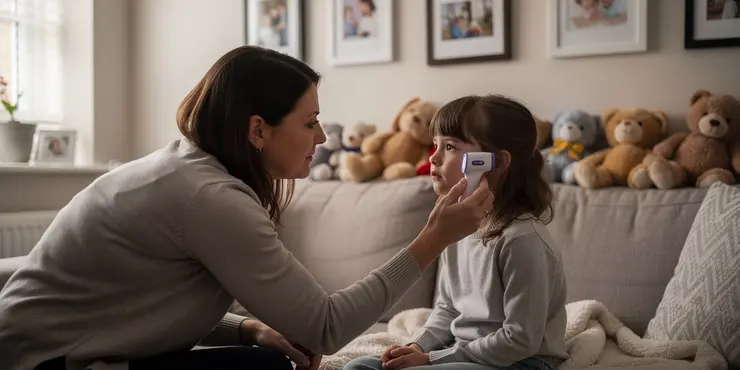
Caring for a child with fever | NHS
Relevance: 53%
-
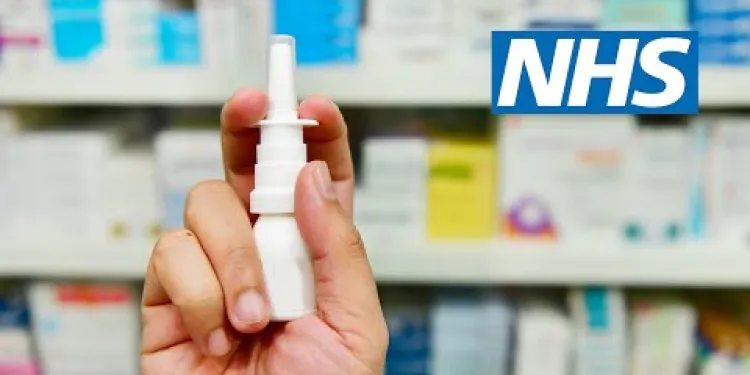
Hay fever advice | NHS
Relevance: 48%
-
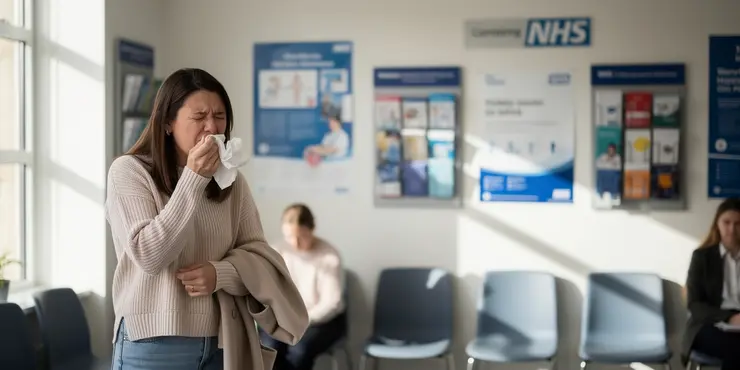
What is hay fever?
Relevance: 48%
-
Should individuals with certain medical conditions avoid aspirin?
Relevance: 46%
-
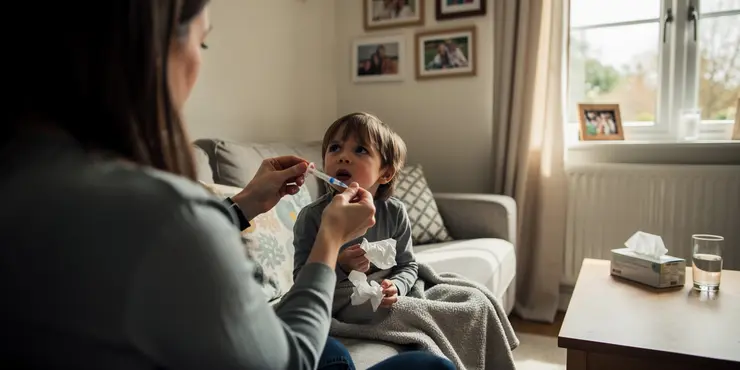
Can children take the same cold medications as adults?
Relevance: 45%
-
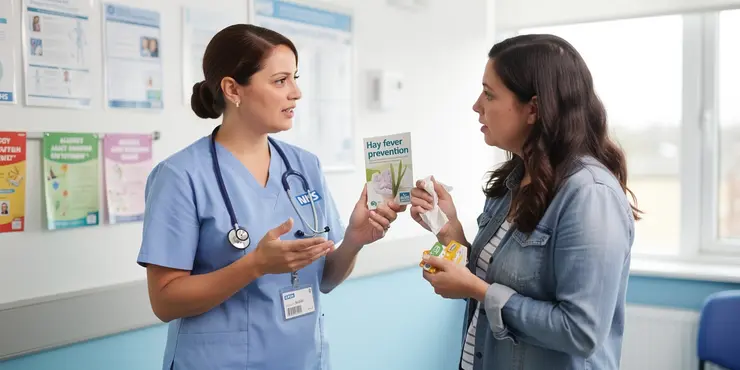
Can hay fever be prevented?
Relevance: 44%
-
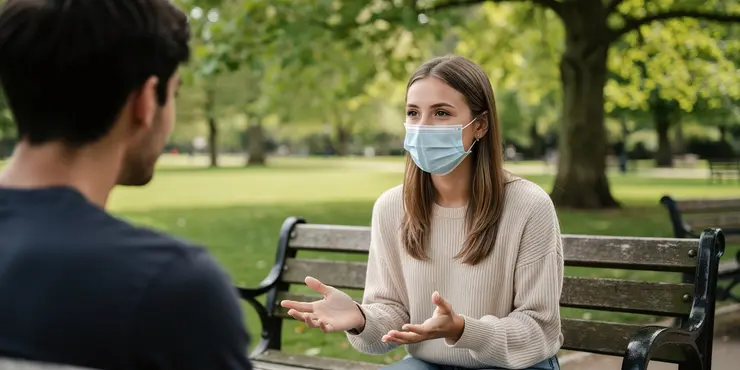
Do masks help with hay fever?
Relevance: 44%
-
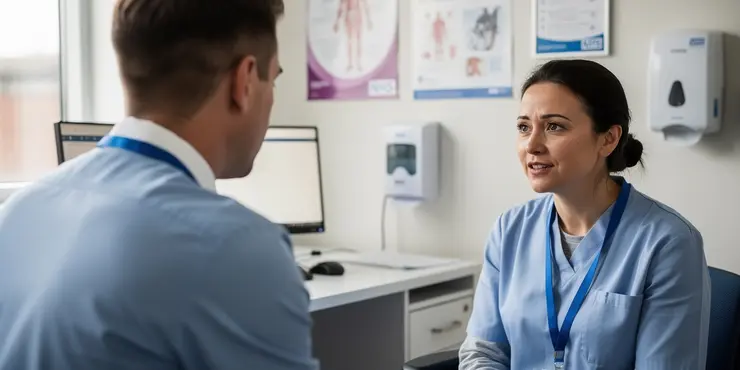
How to treat glandular fever | NHS
Relevance: 44%
-
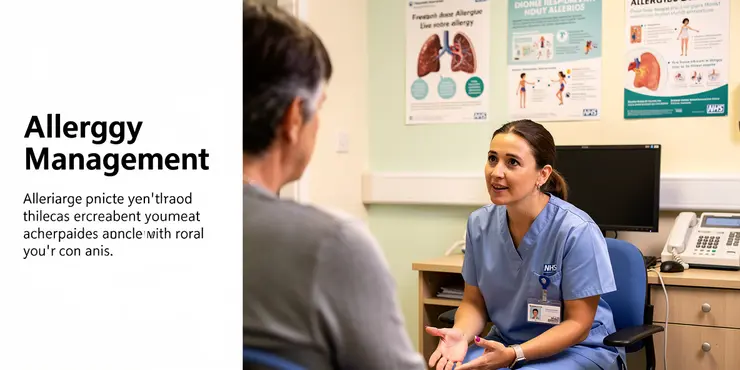
Is there a link between hay fever and asthma?
Relevance: 43%
-

Are some people more prone to hay fever?
Relevance: 43%
-
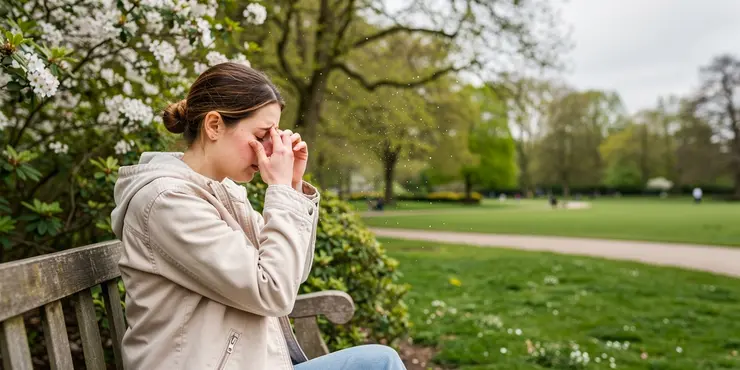
How does pollen affect people with hay fever?
Relevance: 42%
-
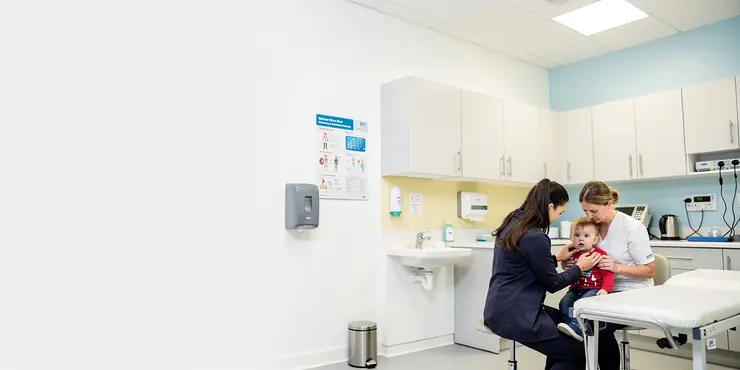
What is bronchiolitis in children? The symptoms, warning signs and when to seek medical help
Relevance: 42%
-
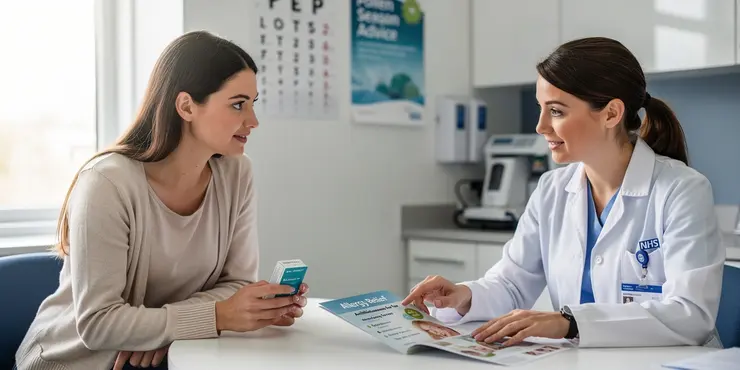
Antihistamines how they work with hay fever
Relevance: 41%
-
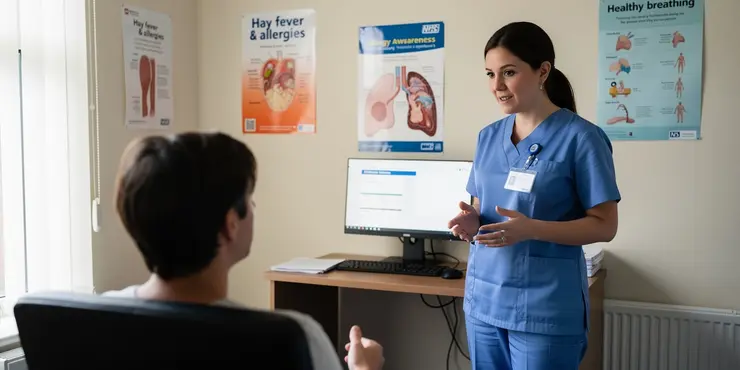
Do all plants produce pollen that causes hay fever?
Relevance: 41%
-
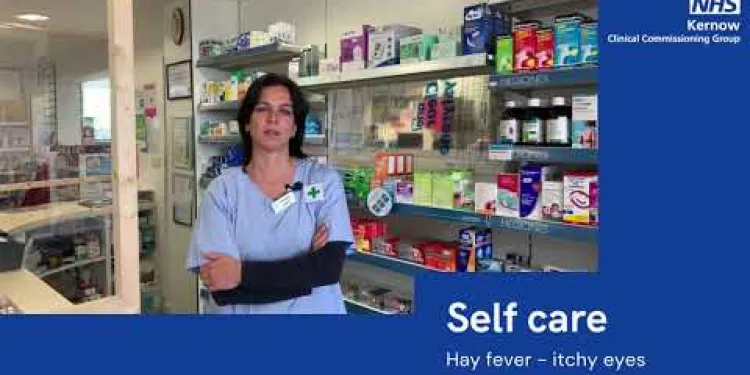
Self care - hay fever itchy eyes
Relevance: 41%
-
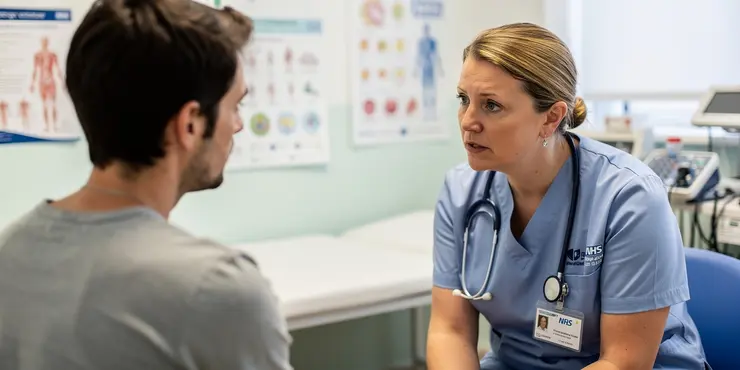
Can hay fever occur year-round?
Relevance: 40%
-
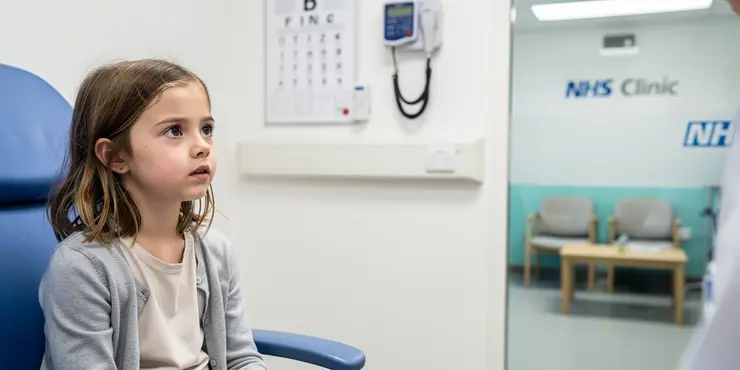
What is lupus in children?
Relevance: 40%
-

Do pets contribute to hay fever?
Relevance: 40%
-

Can dengue fever be contracted in the UK?
Relevance: 39%
-
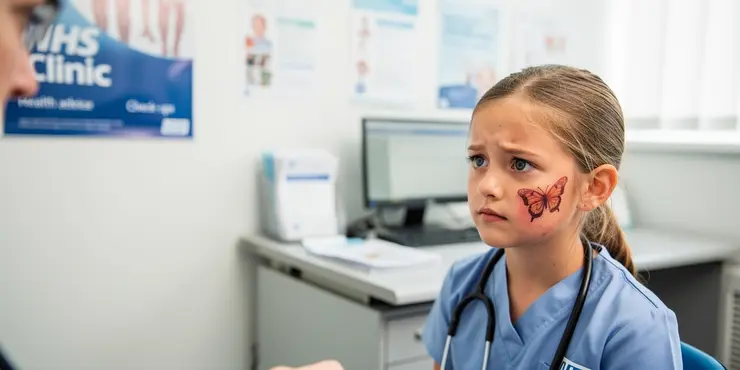
What are the common symptoms of lupus in children?
Relevance: 39%
-
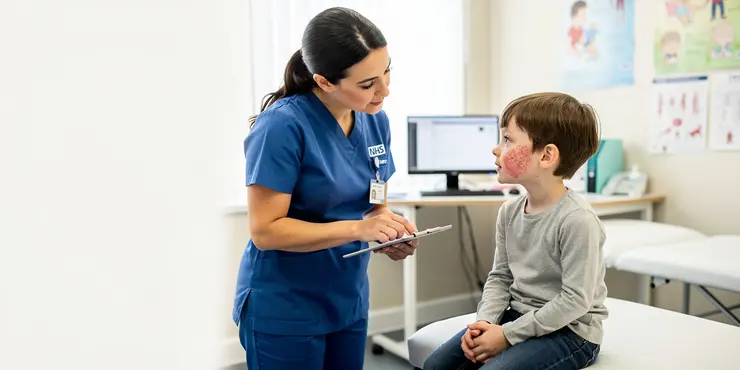
Lupus in children | NHS
Relevance: 39%
-

Can diet influence hay fever symptoms?
Relevance: 38%
-
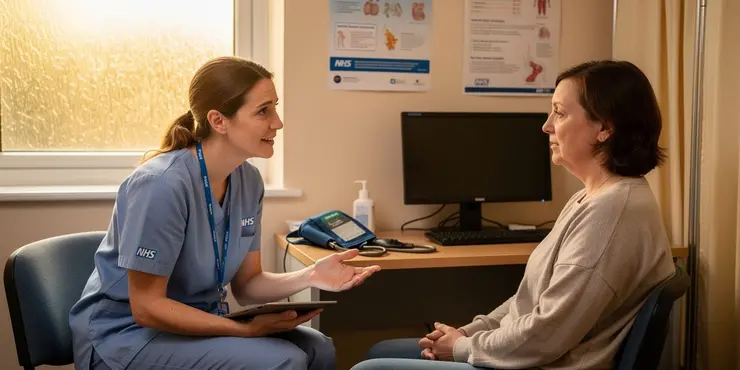
What is Dengue Fever?
Relevance: 37%
-

Is hay fever more common in urban areas?
Relevance: 37%
-
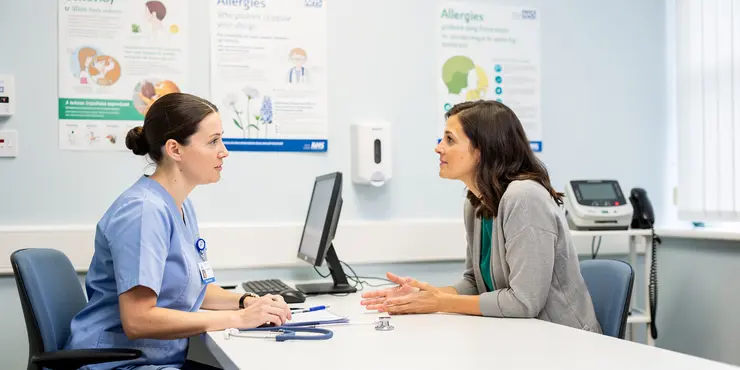
What are the common symptoms of hay fever?
Relevance: 36%
-
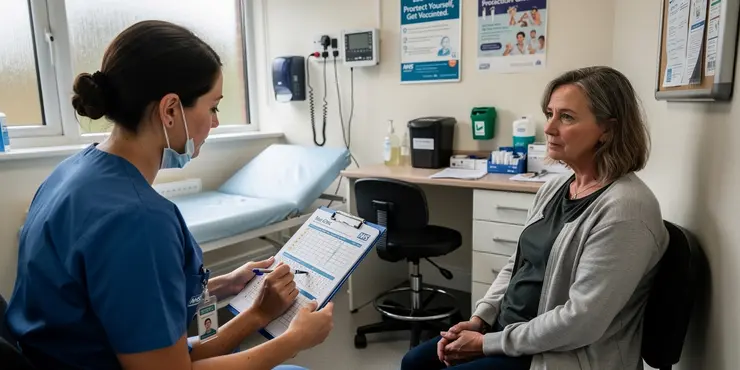
Is there a risk of yellow fever being spread by mosquitoes in the UK?
Relevance: 36%
-
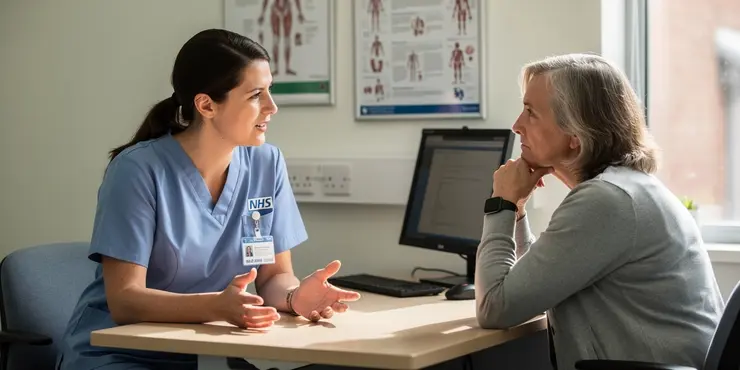
Why are experts warning of rising hay fever cases?
Relevance: 36%
-

Experts Warn of Rising Hay Fever Cases as Pollen Counts Surge
Relevance: 36%
-

How to treat diarrhoea and vomiting at home (adults and children aged 5 and over) | NHS
Relevance: 36%
-
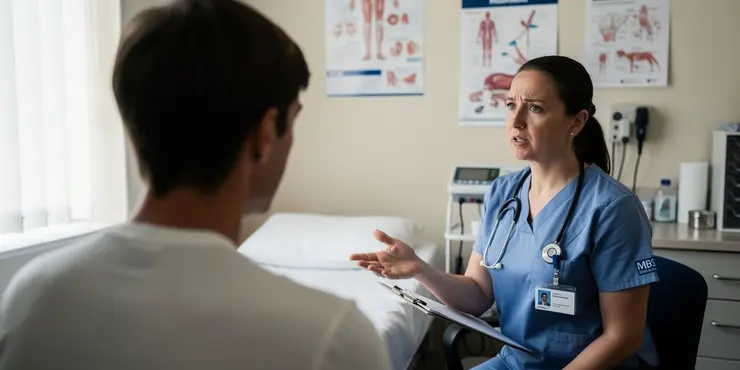
Can hay fever symptoms mimic other conditions?
Relevance: 36%
-

When should I seek medical help for impetigo?
Relevance: 35%
-
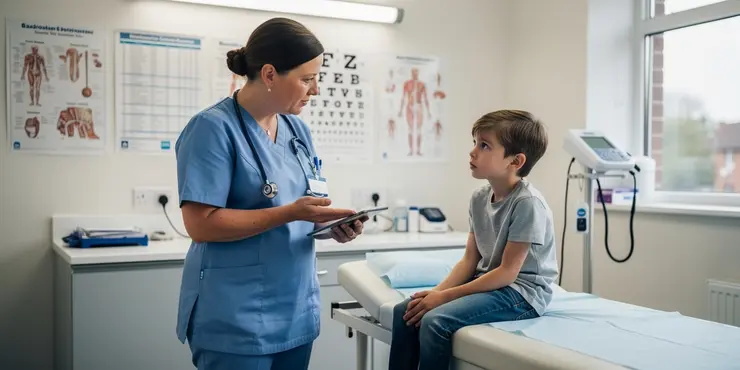
Is Baxdrostat suitable for children?
Relevance: 34%
-
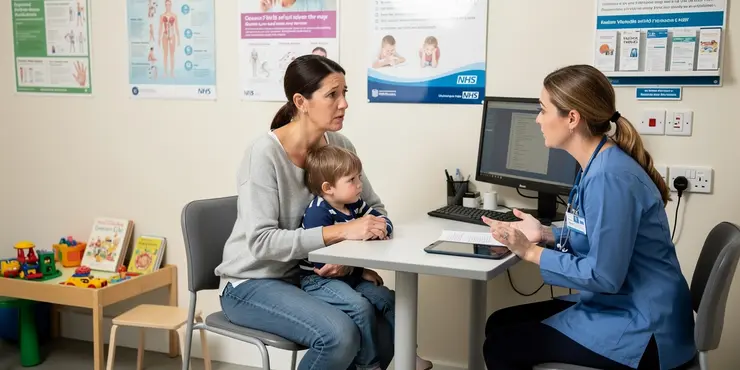
When should I seek medical advice for norovirus?
Relevance: 33%
-
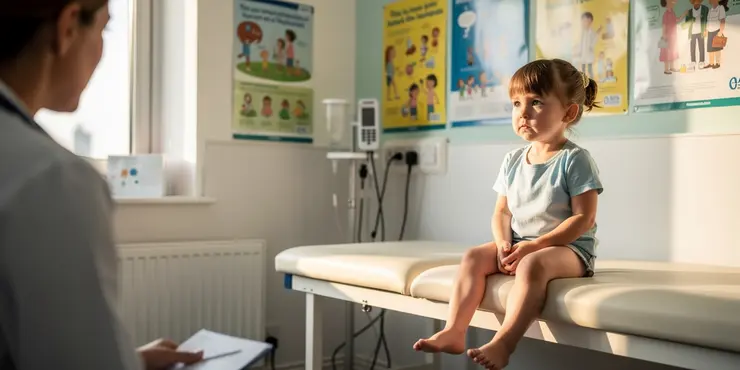
Can children use Mounjaro?
Relevance: 32%
-
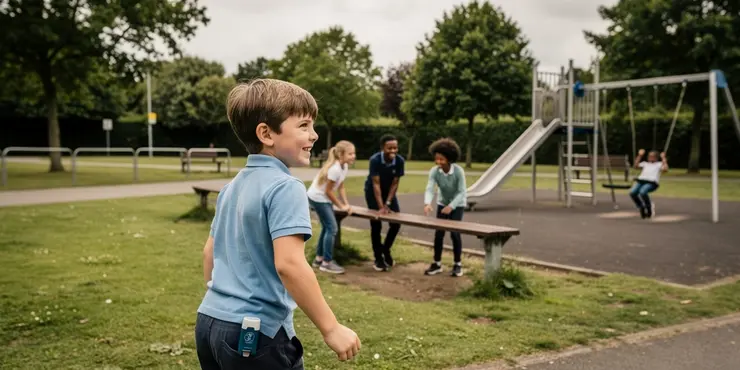
Can children outgrow asthma?
Relevance: 32%
-
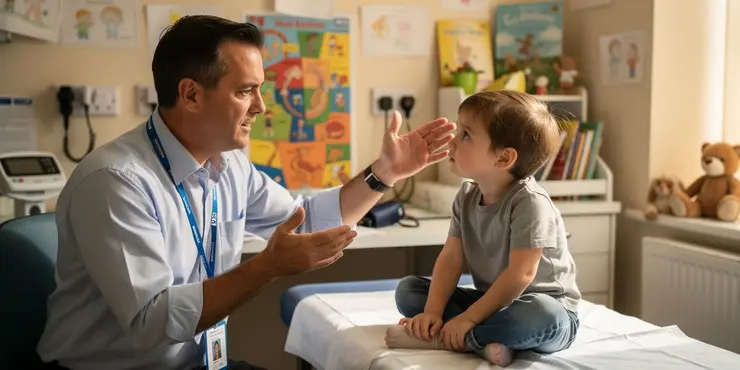
How is lupus diagnosed in children?
Relevance: 32%
-
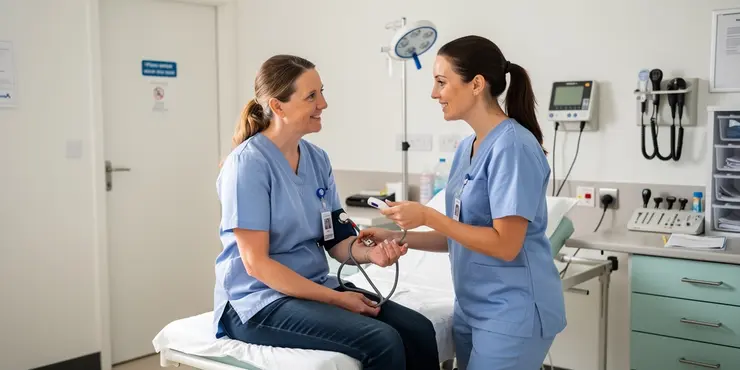
Why is meningitis a medical emergency?
Relevance: 32%
-
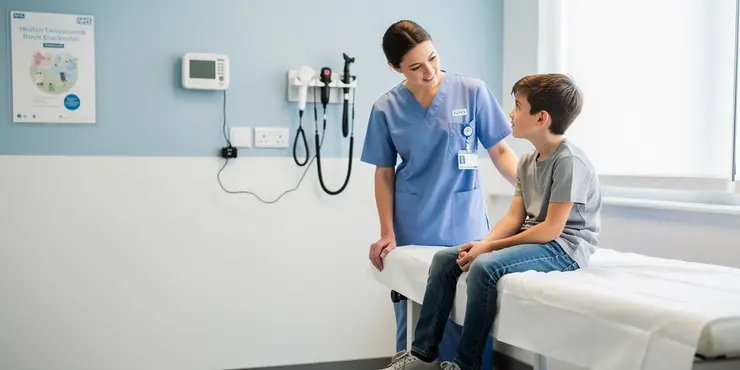
Can Wegovy be used by children?
Relevance: 32%
Introduction
When a child develops a fever, it can be a worrying time for parents. While medications can help manage fever and alleviate discomfort, it is crucial to ensure that the appropriate medication is selected to avoid adverse effects. In the UK, there are specific guidelines about which medications should be avoided in children who have a fever.
Avoid Use of Aspirin in Children
One medication that should certainly be avoided in children under 16 is aspirin. Aspirin is known for its anti-inflammatory and analgesic properties, and while it is commonly used in adults, it can have serious side effects in children. The most significant risk associated with aspirin use in children is Reye's syndrome, a rare but potentially fatal condition that causes swelling in the liver and brain. Reye's syndrome often follows a viral infection, such as chickenpox or the flu, and the use of aspirin in this context increases the risk. In the UK, it is strongly advised that aspirin is not given to children or teenagers, particularly when they have a fever.
Alternative Medications
For reducing fever and alleviating discomfort in children, paracetamol (also known as acetaminophen) and ibuprofen are generally considered safe and effective alternatives. Paracetamol can be given to children over two months old to help reduce fever and provide pain relief. Meanwhile, ibuprofen can be used for children over three months who weigh more than 5kg. Both medications work by reducing the production of chemicals in the body that cause pain and swelling, leading to reduced fever and discomfort.
Guidelines for Administration
While paracetamol and ibuprofen are considered safe, it is crucial to follow the recommended dosages. Parents should always check the packaging for age-appropriate formulations and dosing instructions. It’s essential to use the correct strength of medication for the child’s age and weight to avoid overdosing. Additionally, these medications should not be used concurrently without medical advice.
Consult a Healthcare Professional
In cases where a child has a prolonged fever or seems particularly unwell, it is advisable to consult a healthcare professional. They can provide tailored advice and, if necessary, further medical intervention. While over-the-counter medications are often suitable for treating mild to moderate fever, persistent or severe symptoms should be evaluated by a doctor.
Conclusion
Choosing the right medication for a child with a fever is an important decision that can affect their health and recovery. In the UK, it is advised to avoid aspirin in children due to the associated risk of Reye's syndrome. Instead, paracetamol and ibuprofen are preferred alternatives, provided they are used within the recommended guidelines. If ever in doubt, consulting a healthcare professional is the safest course of action to ensure the well-being of a child experiencing a fever.
Introduction
When kids get a fever, it can make parents worried. Medicine can help make the fever go down and help the child feel better. But, it's important to pick the right medicine to keep them safe. In the UK, there are rules about which medicines kids should not take when they have a fever.
Do Not Give Aspirin to Children
Kids under 16 should not take aspirin. Aspirin is a medicine that grown-ups use a lot, but it's not safe for kids. Aspirin can cause bad side effects and can lead to a serious illness called Reye's syndrome. Reye's syndrome can make the liver and brain swell, which is very dangerous. It can happen after a child has had an illness like chickenpox or the flu and took aspirin. In the UK, doctors say not to give aspirin to kids or teenagers, especially if they have a fever.
Other Medicines You Can Use
Instead of aspirin, you can give kids paracetamol (also called acetaminophen) or ibuprofen. These are safer and work well to help with fever and pain. You can give paracetamol to kids older than two months. Ibuprofen can be given to kids older than three months if they weigh more than 5kg. Both medicines help by reducing the things in the body that cause pain and fever.
How to Give Medicine Safely
It's important to give the right amount of paracetamol or ibuprofen. Always check the medicine label for instructions. Make sure you give the amount that is right for your child's age and weight. Don’t mix these medicines without asking a doctor first.
Talk to a Doctor If Needed
If a child has a fever for a long time or seems very sick, you should talk to a doctor. They can give special advice and help if needed. Medicines you buy at the store usually work for small fevers, but if the fever is bad and won’t go away, a doctor should look at your child.
Conclusion
Picking the right medicine for a child with a fever is important for their health. In the UK, kids should not take aspirin because it can cause Reye's syndrome. Paracetamol and ibuprofen are better choices to help kids feel better, as long as you follow the instructions. If you are not sure what to do, it’s best to ask a doctor to make sure your child is safe and healthy.
Frequently Asked Questions
Which medication is generally not recommended for children with fevers?
Aspirin is generally not recommended for children with fevers due to the risk of Reye's syndrome.
What is Reye's syndrome?
Reye's syndrome is a rare but serious condition that can cause swelling in the liver and brain, and it has been associated with aspirin use in children recovering from viral infections.
Why can aspirin be dangerous for children with fevers?
Aspirin can be dangerous for children with fevers because it increases the risk of developing Reye's syndrome, especially if used during viral infections like chickenpox or the flu.
What are safer alternatives to aspirin for treating fever in children?
Safer alternatives to aspirin for treating fever in children include acetaminophen (Tylenol) and ibuprofen (Advil, Motrin).
At what age is it safe to give children aspirin?
Aspirin should generally not be given to anyone under the age of 18, unless specifically directed by a healthcare provider for certain conditions.
Can ibuprofen be used in children of all ages?
Ibuprofen is not recommended for infants younger than 6 months old. For older children, follow dosing instructions based on age and weight.
Why is acetaminophen recommended for reducing fever in children?
Acetaminophen is recommended because it is effective at reducing fever and pain, and it is considered safe for most children when dosed appropriately.
What should parents do if their child has a fever?
Parents should ensure the child stays hydrated, monitor the fever, and use fever-reducing medications like acetaminophen or ibuprofen following the dosing instructions. Consult a healthcare provider if concerned.
Are there any other medications besides aspirin that should be avoided for children with fevers?
Besides aspirin, medications containing salicylates should also be avoided in children due to similar risks.
Can children take over-the-counter cold and flu medications if they have a fever?
Many over-the-counter cold and flu medications contain aspirin or salicylates, so it is important to read labels carefully and consult with a healthcare provider before giving them to children.
What should you do if you accidentally give a child aspirin?
If you accidentally give a child aspirin, seek medical advice immediately, especially if the child shows symptoms of Reye's syndrome.
What symptoms might indicate Reye's syndrome?
Symptoms of Reye's syndrome include vomiting, confusion, lethargy, seizures, and loss of consciousness. Immediate medical attention is crucial if these symptoms are observed.
Is it safe to use herbal remedies for children's fevers?
While some herbal remedies may be safe, always consult with a healthcare provider before using them, as their safety and efficacy can vary.
Can fever reducers be used together with antibiotics?
Yes, fever reducers like acetaminophen or ibuprofen can be used alongside antibiotics, but always consult a healthcare provider for guidance.
What non-medication methods can help lower a child's fever?
Non-medication methods include ensuring the child is well hydrated, dressing them in lightweight clothing, and using a lukewarm sponge bath.
Is it ever appropriate to let a child's fever run its course?
In some cases, allowing a low-grade fever to run its course can be beneficial as it is the body’s natural response to fighting infection.
Are there any contraindications for using acetaminophen in children?
Children with liver disease or those already taking medications containing acetaminophen should not take this medication without consulting a healthcare provider.
How often can acetaminophen be administered to children for fever?
Acetaminophen can usually be given every 4 to 6 hours, but it's important to follow the specific dosing instructions on the label or provided by a healthcare provider.
Can ibuprofen be alternated with acetaminophen to treat fever in children?
Alternating ibuprofen with acetaminophen is sometimes recommended for persistent fevers, but always consult with a healthcare provider before doing so to ensure safety.
At what temperature should you seek medical attention for a child's fever?
Seek medical attention if the child's temperature is 104°F (40°C) or higher, if they show symptoms of distress, or if the fever lasts more than a few days.
Which medicine should kids with fevers not take?
Children should not take aspirin if they have a fever. It can cause a serious illness called Reye's syndrome.
What is Reye's syndrome?
Reye's syndrome is a sickness that affects the brain and liver. It mostly happens in children. It can make children very sick, especially after they have had the flu or chickenpox.
Signs of Reye's syndrome can include vomiting a lot, being very tired, acting confused, or having seizures (which are like strong shaking). If you see these signs, you should go to the doctor.
Reye's syndrome is rare, but it is serious. Doctors can help children who have it. To stay safe, children should not take medicine with aspirin without asking a doctor first.
If you want help reading or learning more, ask a teacher or a parent. You can also use pictures or videos to understand better.
Reye's syndrome is a sickness that doesn't happen often, but it is very serious. It can make the liver and brain swell. This sickness can happen when children take aspirin to feel better after being sick with a virus.
Why is aspirin not safe for kids with a fever?
Aspirin can hurt kids when they have a fever. It can make them very sick. There is a danger called Reye's syndrome.
Reye's syndrome affects the liver and brain. It can be very serious.
It is better to give kids medicine like paracetamol (also called acetaminophen) when they have a fever.
Ask a doctor or pharmacist for advice if you are not sure what to do.
Use pictures or simple charts to help understand this information better.
Aspirin can be harmful for children who have a fever. This is because it can cause a serious illness called Reye's syndrome. This is more likely to happen if the child has a virus, like chickenpox or the flu.
What can children take for fever instead of aspirin?
When kids have a fever, you can give them medicine to help. Two safe options are acetaminophen, which is also called Tylenol, and ibuprofen, known as Advil or Motrin.
When is it safe for kids to take aspirin?
It's important to know when kids can have aspirin safely. Aspirin is a type of medicine. Don't give it to kids under 12 years old. It could make them very sick. Always talk to a doctor first.
Here are some tips to help:
- Use simple words to explain things.
- Ask a doctor if you are unsure.
- Read labels on medicine bottles carefully.
You should not give aspirin to anyone younger than 18 years old. Only give it if a doctor says it's okay for certain health reasons.
Can children take ibuprofen?
Is it safe for all children to take ibuprofen?
Do not give ibuprofen to babies less than 6 months old. For older children, make sure to use the right amount for their age and weight.
Why do we give children acetaminophen for fever?
Acetaminophen helps make a child's fever go down.
It is safe for children if given in the right amount.
Check with your doctor or nurse for the right dose.
If your child has a fever, give them lots to drink.
Acetaminophen is good medicine. It helps bring down fever and pain. It is safe for most kids if you give the right amount.
What can parents do if their child feels hot?
If your child feels hot, they might have a fever. A fever means their body is fighting germs.
- Check their temperature: Use a thermometer to see how hot they are.
- Rest: Make sure your child gets plenty of sleep.
- Drink water: Give them lots of water or juice to drink.
- Light clothes: Dress them in light clothes to keep them cool.
- Medicine: If the doctor says it's okay, you can give them medicine to lower the fever.
If the fever lasts a long time or they seem very sick, call or visit the doctor.
You can also use pictures or videos to help your child understand what is happening. Talking to your child calmly can make them feel better too.
Parents should make sure the child drinks plenty of water. Check if the child has a fever. You can give medicine like acetaminophen or ibuprofen to help with the fever. Follow the instructions on the medicine box. Talk to a doctor if you are worried.
What other medicines should children with fevers not take apart from aspirin?
When children have a fever, they should not take certain medicines. Ask a doctor or a pharmacist for help. A thermometer can help you check a child's temperature. Some medicines can make children sick. Make sure to use the right tools, like a medicine cup or syringe, to give them the correct amount.
Do not give medicines with salicylates to children. They can be harmful, like aspirin.
Can kids use store-bought cold and flu medicine when they have a fever?
When kids get sick with a cold or flu, they might have a fever. A fever means their body is warmer than usual.
Here are some things that can help:
- Ask the doctor: Before giving any medicine, it is important to talk to a doctor. They can tell you if it's safe.
- Read the label: Look at the medicine box. Check if it is okay for kids to use.
- Follow advice: Listen to what the doctor or people you trust say about the medicine.
Always make sure to give the right amount of medicine. Use a special spoon or cup that comes with the medicine to measure it.
Some tools and tips to help:
- Use pictures: Look for picture guides on the medicine box.
- Easy apps: Some smartphone apps can help remind you when to give medicine.
- Ask for help: If you’re not sure, ask someone you trust to help you.
Many medicines you buy for colds and flu have something called aspirin or salicylates in them. It is very important to read the labels carefully. Talk to a doctor before giving these medicines to children.
What to Do If You Give a Child Aspirin by Mistake
If you give a child aspirin by mistake, follow these easy steps:
- Stay calm. Try not to worry too much.
- Call a doctor or the emergency help line right away. They can tell you what to do.
- You can also call the Poison Control Center for advice.
- Make sure to tell them how much aspirin the child took.
- Follow the instructions they give you.
You can use tools like a phone to make the call. Ask an adult for help if you need it. Remember, doctors and helpers are there to keep the child safe.
If you give a child aspirin by mistake, talk to a doctor right away. Make sure to do this quickly, especially if the child seems sick with signs of Reye's syndrome.
What signs show Reye's syndrome?
Reye's syndrome is a sickness. Here are some signs to watch for:
- Feeling very sleepy or tired
- Getting sick or throwing up
- Acting confused or not making sense
- Shaking or having fits
- Not being able to stay awake
If you see any of these signs, tell a doctor or adult right away.
Using picture cards or asking someone to explain the words can help if you need more support.
Reye's syndrome has signs that show something is wrong. These signs include throwing up, feeling confused, being very sleepy, having fits, and passing out. It is very important to get a doctor’s help right away if you see these signs.
Can kids use herbs for fevers safely?
Some herbal remedies might be safe. But it's important to talk to a doctor or nurse before using them. They will help to make sure it's safe and if it works well.
Can you take medicine for fever with antibiotics?
Yes, you can take medicine like acetaminophen or ibuprofen to help with a fever when you are also taking antibiotics. But, always ask a doctor or nurse before you do.
How can you help a child with a fever without using medicine?
Here are some ways to help a child feel better without using medicine:
1. Make sure the child drinks plenty of water.
2. Dress the child in light clothes.
3. Give the child a bath with warm water and a sponge.
These steps can help the child feel more comfortable.
Is it okay to let a child's fever get better on its own?
Sometimes, a child with a fever might get better without going to the doctor. But you need to be careful and watch them closely.
Here's what to do if your child has a fever:
- Check how they feel. Are they playing or looking sick?
- Make sure they drink plenty of water.
- Keep them resting in a cozy place.
- If the fever is very high or lasts for a long time, call a doctor.
If you're not sure what to do, ask an adult or a doctor for help. You can also use a thermometer to check the fever.
Sometimes, it's good to let a small fever happen. This is because it helps the body fight germs and get better.
When should children not take acetaminophen?
Here are some reasons why a child should not take acetaminophen:
- If the child is allergic to acetaminophen.
- If the child has liver problems.
- Always check with a doctor if you are unsure.
It is important to give the right amount of medicine. Use a special medicine spoon or cup to measure. Asking a doctor or pharmacist can help make sure it is safe.
If a child has liver problems or is already taking medicine with acetaminophen, do not give them this medicine unless a doctor says it's okay.
How many times can you give acetaminophen to kids who have a fever?
If your child has a fever, you might want to give them some medicine to help. Acetaminophen is a type of medicine that can help bring a fever down.
Here are some tips to help:
- Check the label on the medicine bottle to see how much to give.
- Usually, you can give acetaminophen every 4 to 6 hours if your child needs it. But don't give it more than 5 times in one day.
- Use the measuring cup or spoon that comes with the medicine to give the right amount.
- If your child is still sick after taking the medicine, talk to a doctor.
Parents or caregivers can use alarms or reminders to keep track of the time for doses. It's important to make sure your child gets the right amount of medicine and not too much.
You can give acetaminophen every 4 to 6 hours. Make sure to read the label to know how much to give. You can also ask your doctor or nurse.
Can Ibuprofen and Acetaminophen Be Used for Fever in Children?
You can give ibuprofen and acetaminophen to children to help with fever. It is important to do it safely. You can give one medicine first, then wait a few hours before giving the other. This can help if the fever does not go away with just one medicine.
It is very important to read the medicine instructions. Look at the right dose for your child's age and weight. You can also ask a doctor or nurse for help.
Using a chart can help you remember when to give each medicine. A timer or alarm on your phone can remind you too.
Sometimes, when a fever won't go away, people switch between taking ibuprofen and acetaminophen. But, before you do this, always talk to a doctor to make sure it is safe.
When should you call a doctor for a child's fever?
If a child's fever is over 39°C, call a doctor.
You can use a thermometer to check their temperature.
If you are worried, ask a grown-up or doctor for help.
Get help from a doctor if the child's temperature is 104°F (40°C) or more. Also, get help if the child seems very upset or if the fever stays for more than a few days.
Useful Links
This website offers general information and is not a substitute for professional advice.
Always seek guidance from qualified professionals.
If you have any medical concerns or need urgent help, contact a healthcare professional or emergency services immediately.
Some of this content was generated with AI assistance. We’ve done our best to keep it accurate, helpful, and human-friendly.
- Ergsy carfully checks the information in the videos we provide here.
- Videos shown by Youtube after a video has completed, have NOT been reviewed by ERGSY.
- To view, click the arrow in centre of video.
- Most of the videos you find here will have subtitles and/or closed captions available.
- You may need to turn these on, and choose your preferred language.
- Go to the video you'd like to watch.
- If closed captions (CC) are available, settings will be visible on the bottom right of the video player.
- To turn on Captions, click settings .
- To turn off Captions, click settings again.
More Items From Ergsy search
-

Which medication should be avoided for children with fevers?
Relevance: 100%
-

Can children develop hay fever?
Relevance: 70%
-

Caring for a child with fever | NHS
Relevance: 53%
-

Hay fever advice | NHS
Relevance: 48%
-

What is hay fever?
Relevance: 48%
-
Should individuals with certain medical conditions avoid aspirin?
Relevance: 46%
-

Can children take the same cold medications as adults?
Relevance: 45%
-

Can hay fever be prevented?
Relevance: 44%
-

Do masks help with hay fever?
Relevance: 44%
-

How to treat glandular fever | NHS
Relevance: 44%
-

Is there a link between hay fever and asthma?
Relevance: 43%
-

Are some people more prone to hay fever?
Relevance: 43%
-

How does pollen affect people with hay fever?
Relevance: 42%
-

What is bronchiolitis in children? The symptoms, warning signs and when to seek medical help
Relevance: 42%
-

Antihistamines how they work with hay fever
Relevance: 41%
-

Do all plants produce pollen that causes hay fever?
Relevance: 41%
-

Self care - hay fever itchy eyes
Relevance: 41%
-

Can hay fever occur year-round?
Relevance: 40%
-

What is lupus in children?
Relevance: 40%
-

Do pets contribute to hay fever?
Relevance: 40%
-

Can dengue fever be contracted in the UK?
Relevance: 39%
-

What are the common symptoms of lupus in children?
Relevance: 39%
-

Lupus in children | NHS
Relevance: 39%
-

Can diet influence hay fever symptoms?
Relevance: 38%
-

What is Dengue Fever?
Relevance: 37%
-

Is hay fever more common in urban areas?
Relevance: 37%
-

What are the common symptoms of hay fever?
Relevance: 36%
-

Is there a risk of yellow fever being spread by mosquitoes in the UK?
Relevance: 36%
-

Why are experts warning of rising hay fever cases?
Relevance: 36%
-

Experts Warn of Rising Hay Fever Cases as Pollen Counts Surge
Relevance: 36%
-

How to treat diarrhoea and vomiting at home (adults and children aged 5 and over) | NHS
Relevance: 36%
-

Can hay fever symptoms mimic other conditions?
Relevance: 36%
-

When should I seek medical help for impetigo?
Relevance: 35%
-

Is Baxdrostat suitable for children?
Relevance: 34%
-

When should I seek medical advice for norovirus?
Relevance: 33%
-

Can children use Mounjaro?
Relevance: 32%
-

Can children outgrow asthma?
Relevance: 32%
-

How is lupus diagnosed in children?
Relevance: 32%
-

Why is meningitis a medical emergency?
Relevance: 32%
-

Can Wegovy be used by children?
Relevance: 32%


